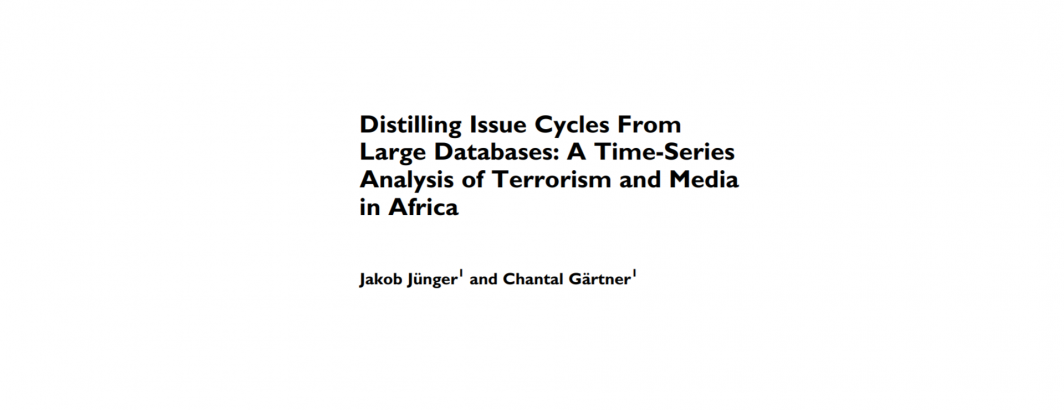
This analysis uses GDELT as a source for issue cycle media analysis around terrorism events in Africa:
Analyzing issue cycles usually begins with observing selected events and then tracking the course of media coverage. This approach collapses when the events of interest are hidden, overlain, or even distorted by extensive coverage of other events. One such complicated case is news about terrorism in Africa. While previous studies have started from single media hypes, we propose modeling the general pattern of such issue cycles with distributed lag models on a large-scale data basis. In order to assess the utility of distributed lag models, two basic principles of issue cycles are derived from theory and empirically tested. Furthermore, using the Global Database of Events, Language, and Tone, we evaluate the usefulness of automated methods for news research. Although the data are quite noisy, automated content analysis combined with distributed lag models is a promising approach for studying issue cycles. The model can be used to visualize issue cycles. In the case of news about terrorism in Africa, we found a sudden increase in coverage, followed by a second local maximum after a few weeks.